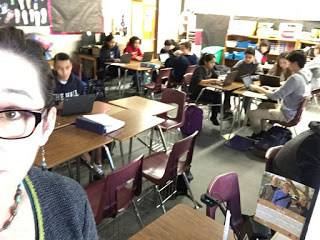#teachingthings
Explore tagged Tumblr posts
Text
Unlocking Success: Why an Excellent Education Hub is Key to Your Future
In today’s fast-paced world, choosing the right place for your education is more important than ever. Whether you're just starting high school, preparing for college, or looking to advance your career, finding an excellent education hub can make all the difference. An excellent education hub offers not just a place to learn but an environment that fosters growth, creativity, and success. In this article, we’ll explore why an excellent education hub is essential for every student and how it can shape your future in ways you may not even realize.
What Makes an Excellent Education Hub?
An excellent education hub is more than just a school or college. It’s a comprehensive learning environment where students have access to resources, guidance, and opportunities that help them reach their full potential. But what exactly makes a place an excellent education hub?
Quality TeachingThe foundation of any excellent education hub is the quality of the teachers. Experienced, knowledgeable, and passionate educators can inspire students to love learning and push their limits. Whether you're studying science, literature, or mathematics, having teachers who care about your success makes all the difference.
State-of-the-Art ResourcesAnother crucial aspect of an excellent education hub is the availability of modern tools and resources. From well-equipped classrooms to online platforms and libraries, a great education hub ensures that students have access to the latest educational technology. This access can help students grasp concepts more effectively and stay ahead in their studies.
Supportive EnvironmentAn excellent education hub also offers a nurturing environment where students feel safe and supported. Mental health resources, counseling services, and peer mentorship programs all contribute to a well-rounded educational experience. A positive, encouraging atmosphere helps students focus on learning without distractions or stress.
Extracurricular OpportunitiesLearning doesn’t stop in the classroom. An excellent education hub provides various extracurricular activities such as sports, music, art, and leadership programs. These activities allow students to explore their passions, develop new skills, and build confidence outside of academic subjects.
Career Guidance and CounselingA key element of an excellent education hub is its commitment to helping students with their future career paths. Career counseling, internship opportunities, and job placement programs are essential for preparing students for life after school. With the right guidance, students can make informed decisions about their careers and have a clearer vision of their future.
Why Students Should Choose an Excellent Education Hub
Choosing the right excellent education hub can set you on the path to success. Let’s take a look at some of the reasons why this decision is so important:
Personalized LearningAn excellent education hub often offers personalized learning experiences. With smaller class sizes and tailored educational plans, students can receive the attention they need to succeed. Whether you're a fast learner or need extra support, an excellent education hub can adjust its approach to suit your needs.
Better Academic PerformanceBeing in an environment that values education and has top-notch resources can greatly improve your academic performance. Studies show that students who attend quality educational institutions tend to perform better on exams, have higher graduation rates, and are more prepared for the challenges of higher education or the workforce.
Building Strong NetworksOne of the key advantages of an excellent education hub is the opportunity to build connections. Whether it's with teachers, fellow students, or industry professionals, a strong network can open doors to future opportunities. An education hub often has strong alumni networks and relationships with businesses and universities, making it easier for students to access internships, scholarships, and job opportunities.
Enhanced Soft SkillsIn addition to academic knowledge, an excellent education hub also focuses on developing soft skills such as communication, teamwork, leadership, and problem-solving. These skills are highly valued in the workplace and are essential for personal growth.
Preparing for the FutureThe world is changing rapidly, and an excellent education hub helps students adapt to these changes. By offering courses in emerging fields, such as AI, digital marketing, or renewable energy, students are better prepared to succeed in the future workforce. Moreover, an excellent education hub often provides exposure to global learning trends, which can be especially beneficial in today’s interconnected world.
How to Find an Excellent Education Hub
Finding the perfect excellent education hub may seem daunting, but by considering a few key factors, you can make the right choice. Start by researching schools or colleges with a strong academic reputation. Look for institutions that offer the courses and extracurricular activities that align with your interests and goals.
It’s also important to consider the location, as an excellent education hub should be accessible and convenient for you. Whether you prefer an urban campus or a more peaceful, rural setting, the location can impact your overall experience.
Finally, speak with current students, alumni, and faculty to get a sense of what life is like at the institution. Their insights will help you make a more informed decision.
Conclusion
An excellent education hub plays a vital role in shaping a student's academic journey and future success. By providing top-tier resources, personalized support, and a rich learning environment, an excellent education hub ensures that students are not only well-prepared for exams but also for life beyond the classroom. If you're ready to take your education to the next level and set yourself up for a successful future, finding the right excellent education hub is the first step.
0 notes
Text
Symbols, Tarot, & Nature of Man
There are many methodsfor developing the « senseof symbols >> in those whoare striving to understandthe hidden forces of Natureand Man , and for teachingthe fundamental principlesas well as the elements ofthe esoteric language . The-most synthetic and one of-the most interesting of these methods , is the TarotIn its exterior form the Tarot is a pack of cards.
#12(5)
Pogossky
1 note
·
View note
Photo

Now it's time: Choosing Anti-Racist Teaching in 2020 https://bit.ly/3o1fdR4
#teachingintaiwan#teachingisloving#teachingkindergarten#teachingtheyouth#teachingtuesday#teachingothers#teachingprimarype#TeachingThings#TeachingWorldWideteachingeachother#teachinggirls#teachinghimyoung#teachingjourney#teachingmeme#teachingmemes#teachingmykids#teachingscience#teachingoftheday#teachingpro#teaching1#teachingaid#teachingaids#teachingstudents
0 notes
Text
First week done. Each day was a little better than the last. I’m starting to get my sea legs.
I teach 2nd and 3rd grade in a self-contained class. Most of the students know me because I either had them in summer school or they’ve been by to visit. Because my classroom is still under construction I don’t have everything unpacked and not everything has a home. On the first day of school one of my 2nd grade boys asked where my Captain America shield was and why it wasn’t hanging up. He and another boy were mad on Day Two when I still hadn’t brought it in. So I stapled a note to my purse so I wouldn’t forget.
Today the shield was mounted to the wall and the boys are happy. Honestly, it makes me feel better too.
7 notes
·
View notes
Text
I decided to make a side-blog - here’s where I’ll keep my fannish things, but over at @weesta-teaches is where I’ll keep my school and Drama Club musings and inspirations. Feel free to come on over and follow me there!
0 notes
Text
Private School Really Worth The Effort?
private schools in Singapore
Private schools have a myriad of benefits that could be a significant difference in the life of your child. Let us look at the key differences between private and public schools.

Every child's childhood is incomplete without education. Parents are responsible for selecting the most suitable school to offer the best education for their child. There are many different issues to think about as you consider your child's future education plans however, one of the most important considerations is whether a public or private school is the best place to begin.
These are the main differences that makes private schools different from the public school. This information may assist you in making the right decision on how to best prepare your child for school.
Five differences between private and public schools
Private schools differentiate themselves from public schools in myriad of ways. Each creates an environment conducive to academics that leads to greater performance. Here are five that are most impactful on an individual's education and development.
Class-Sizes
One of the most important ways in which private schools in Singapore differ from public is the size of each class. A public school may have classes with as many as 30 students, especially in busy urban areas. Private schools tend to have smaller classes, usually with 20 students or less.
The benefits of smaller class sizes cannot be underestimated. These are only a few of the numerous ways a child's education can improve:
Students are the most important
There are fewer children, which means with less chance of distraction. Larger class sizes mean certain children are pushed further away from the front of the class. Teachers have a harder time trying to keep everyone focused and this can result in a child's focus wandering away from the lesson.
Greater-friendships
A smaller group of students can better be encouraged to meet each other, which makes it much easier to build lasting and meaningful friendships. This feeling of community is essential to private schools and may contribute to a better learning environment. Teachers also gain from this principle, as they are able to spend more time making positive experiences for each pupil.
Time for one-on-one tuition
Massive class sizes in public schools frequently create a challenge for teachers to provide every child with the attention they require to be successful. In private schools, this issue is less of a problem. Teachers can spread their time around the class, getting to know the learning capabilities and preferences of each child. Smaller classes provide more feedback, which is an essential part of the learning process.
Accurate grading
Teachers in public schools are frequently buried under piles of papers and exams they must grade. They can simplify the assignments in public schools to make marking easier. Private schools are able to use fewer papers to grade, so teachers can devote more time to each assignment. This allows for more layered assignments, advanced assignments, and more individual feedback for students.
Curriculum and Teaching
The curriculum offered in private schools in Singapore is yet another significant point of difference when compared with public schools. Private schools aren't required to follow state laws that limit what they can and cannot teach. The advantages of this method include:
Parents have more options for their children.
Public schools cannot offer the flexibility of subject areas or focus areas, but private schools can create their own curriculum. This allows parents to have more choices as well as the ability to select the best school best for their child.
If parents are interested in specialist areas, like certain religions or faiths Private schools can provide an individualized education.
More enthusiasm from teachers
Teachers in private schools in Singapore are granted greater academic freedom and are able to provide specialized instruction for their students. Teachers enjoy greater freedom and flexibilities than other professional working in various sectors. The greater enthusiasm for education from teachers will benefit students at the end of the day.
Specialist education
Private schools often differ in how they recruit teachers as well. With less restrictions on who they are able to employ and focus more on hiring people with specialist knowledge in certain subjects. Schools that are public must hire teachers who have certain qualifications in teaching. Private schools may prefer those who have an Masters or PhD in their field.
In this way, a private school can build an expert team in all the relevant areas, instead of teachers with a basic expertise in a range of subjects.
0 notes
Text
Are students overpaying for tuition fees?

Image copyright PA
Image caption How much does it really cost for a university to teach a student?
If universities in England really need to have tuition fees of £9,250, how can they offer taught postgraduate courses for as little as £5,100?
Since it was revealed a government-commissioned review was considering cutting fees to £6,500, universities have been in overdrive with dire warnings about how this would wreck their finances.
They've warned that not being able to charge some of the highest fees in the world would mean they could not afford to help the most disadvantaged applicants.
While students have complained about graduating with £50,000 in debt, universities are now warning about their own financial pressures.
But it raises the question about how much a university degree really costs to deliver.
Mind the gap
For undergraduate courses in England, fees have kept rising to the maximum permissible level - currently £9,250 per year.
But postgraduate fees have not had the same type of regulation - and this shows how much variety is possible.

Image copyright Getty Images
If you study history at Bristol University at undergraduate level, it costs £9,250 - but a taught one-year MA at the same university is £8,300.
At other Russell Group universities, an MA degree in history at Leeds costs £8,500 and in Newcastle it's £7,400.
The fee gap gets even wider in some other universities.
A postgraduate history degree in York St John is £6,000 - and an MA in English literature at Liverpool John Moores is £5,100.
At University College London it costs £10,440 for an MA in history, and at King's College London it's £9,900.
So while almost every undergraduate course costs the same £9,250 - there is competition in postgraduate degrees, which in theory should cost more.
Different subject costs
According to a 2014 funding council study, postgraduate courses in England, with smaller classes and higher teaching costs, were on average 47% more expensive to deliver for each student.
This was based on each full-time undergraduate student on average costing a university £7,694.
Review is considering cutting fees to £6,500
Is the tuition fees 'illusion' about to unravel?
The degrees that make you rich... and the ones that don't
But is there really a meaningful average? Subjects such as science and medicine require more expensive equipment and longer teaching hours than arts and humanities.
The current system of flat fees for all subjects replaced a funding system shaped around such differences.
Before fees were raised to £9,000 in 2012, the level of government support per student was four times higher for a high-cost subject such as medicine than a low-cost subject such as history.
This was on top of the tuition fee of about £3,400.
For the most expensive courses, there is still an extra teaching grant - but for the majority of subjects, most or all of the funding comes from the tuition fee.
According to Universities UK, the cheapest, classroom-based subjects, such as history, currently cost more than £7,000 to deliver.
Top-up funding
If the "post-18 review" cuts the tuition fee to £6,500, it will still need a further top-up.
This could either mean students paying higher fees for subjects such as science or medicine or else the government will have to provide extra funding.

Image copyright Getty Images
Image caption Science courses cost much more to deliver than arts and humanities
So how much above £6,500 should universities receive?
The last major review of university funding, in 2010, assumed universities on average would charge about £7,500 per year in tuition fees.
Instead, universities raced to the upper limit of £9,000 and the current review into the future of fees, headed by the financier Philip Augar, seems to be looking at ways to bring that level back down.
But universities argue that it's a misunderstanding to see tuition fees in terms of paying for teaching.
Not fees for teaching
The Million Plus group of new universities, in its evidence to the Augar review, says tuition fees are "not directly tied to an individual course of study" and would be "better described as a university fee".
It says the fee covers outreach work for disadvantaged students and all the central services of a university, in terms of facilities, administration, marketing, admissions, and welfare support such as mental health services.

Image copyright Getty Images
Image caption Universities say that some courses are run at a loss even with £9,250 fees
The Russell Group has quantified this - saying that for a course such as history, about £1,100 will be spent on widening access and about £8,100 will be spent on teaching and university services.
It estimates a surplus of about £60 per history student per year - but argues that a university might have a shortfall of £1,000 on each science student.
"Lots of people will be surprised to hear that many universities teach undergraduates at a loss," said Russell Group chief executive Tim Bradshaw.
"If the government really does consider reducing tuition fees, it will have to make up the lost funding in full through teaching grants."
A spokeswoman for the University of Bristol explained their lower fee for a postgraduate year.
"The cost of delivering the programme is only one of many factors which influence how we set tuition fees," she said.
"Our reputation for a certain course, as well as the level at which fees have historically been set, need to be assessed holistically every year to ensure the financial sustainability of the university."
Postgraduate fees also don't have to cover costs for widening access.
Liverpool John Moores said it charged £5,100 for a postgraduate degree because the priority was "not the recovery of our costs but the provision of opportunities for students from all backgrounds".
A spokeswoman said the decision to "price our postgraduate courses competitively and attractively" ensured courses could be kept accessible.
The Department for Education said it would not pre-empt the findings of the fee review, which is expected to report early next year.
More transparency
Nick Hillman, director of the Higher Education Policy Institute, said students wanted more transparency about how fees were divided between teaching and other services.
"Many universities are worried it will lead to demands for much lower fees, leaving universities worse off. I don't agree," he said.
"We know students are sceptical about spending on marketing and recruitment, but they strongly support high spending on teaching and student services, like support for mental health."
But if universities are making a loss at £9,250 per year, how can they charge less for postgraduate degrees?
When the review examines the level of fees, how do universities avoid the impression that they expand or shrink to fill any available funding on offer?


Read more from Reality Check
Send us your questions
Follow us on Twitter
Related Topics
Reality Check
Tuition fees
Universities
Universities in the UK
Original Article : HERE ; This post was curated & posted using : RealSpecific
=> *********************************************** Read More Here: Are students overpaying for tuition fees? ************************************ =>
Are students overpaying for tuition fees? was originally posted by ViralAutobots News - Feed
0 notes
Photo

Wow! What an incredible week! Can't say thank you enough to Sis. Ebonique Dishman Burns. I was honored at the invitation to share my work with the wonderful folks of the #BeecherTerrace #community last night. The Provider connection meeting at The Baxter Community Center was an enormous #success! #kevlengoodner #illeststrator #artwork #manga #anime #comicon #illustration #illustrator #illustrations #artists #sketchbook #sketching #sketches #superheroes #marvel #marvelcomics #dccomics #animation #animation #howtodraw #drawing #teachingthe
#sketches#artists#comicon#dccomics#howtodraw#drawing#animation#marvelcomics#kevlengoodner#illustration#artwork#sketching#success#superheroes#anime#teachingthe#illustrations#sketchbook#illeststrator#manga#illustrator#marvel#community#beecherterrace
0 notes
Text
And at last I began to feel thatall poUtics are inspired by a grinning devil, teachingthe energetic and quickwitted to torture submissivepopulations for the profit of pocket or power or
theory. As we journeyed on, fed by food extractedfrom the peasants, protected by an army recruitedfrom among their sons, I wondered what we had togive them in return. But I found no answer.
0 notes
Photo

Newsletter take 2 #ocd #CantHaveATypo #neuroticweirdo #perfectionist #teacher #oxymoron #teachingthings
0 notes
Text
I’m on the struggle bus
I am not ready for my students tomorrow. Not as ready as I’d like to be, anyway.
My classroom is a wreck. Multiple contractors were in my room today to install cabinets and finish electrical work. Frankly, if I have a working Smart Board tomorrow, I’ll deal with the mess. But, because the physical classroom is a mess I can’t get my head in the right space. It’s challenging.
My classroom isn’t pretty. *SIGH* The walls are practically bare because construction is ongoing and whatever I hang is likely to be ruined. I haven’t even hung up the ALPHABET! I’m hoping that I can get some projects going soon and get student work up as soon as the major construction is complete.
My schedule is a thing in flux. As a special ed teacher of a multi-grade classroom, scheduling is always a problem. You know what makes it more of a problem? When administration doesn’t give teachers the information they need and leaves them scrambling with a “you take care of it” attitude the day before school starts. I know they think I have a magic wand but this is ridiculous.
We spent two hours this morning talking about improving our school’s security. That’s all to the good. But do we really need to break down the Sandy Hook shooting and leave half the staff in tears? No. No we do not.
4 notes
·
View notes